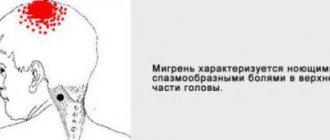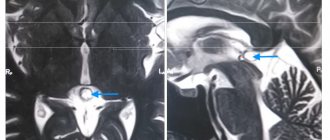For a long time, the boundaries of such a disease in psychiatry as schizophrenia remained very vague. It was attributed to people who were extremely indecisive, unstable in behavior, and had a split personality. However, at the moment, ICD-10 (International Classification of Diseases, 10th revision) defines 8 groups of symptoms - 4 major and 4 minor.
One of the most common symptoms of schizophrenia is hallucinations—false sensations and perceptions. At the same time, 65% of patients have auditory hallucinations - they claim that they hear voices in their heads.
How do they manifest themselves?
The nature of the voices can be extremely different. The voice can be male or female, and maybe even incomprehensible to a person. There may be several voices in your head. They can talk about something of their own, and sometimes they discuss the patient. The discussions are also very diverse.
The voices in your head sometimes praise, and sometimes, on the contrary, they scold. They call you obscene language. Sometimes entire dialogues take place in your head. Voices force, order to do something. Often a person simply cannot resist their pressure, which entails socially dangerous actions. Voices in your head often tell you to hurt yourself or someone else. The patient's behavior becomes completely unpredictable. He perceives the voices that sound in a person’s head as real.
Due to a lack of understanding of the presence of severe mental symptoms in the form of voices in the head, a person is unlikely to seek help from a psychiatrist on his own, so it is necessary to be attentive to your loved ones.
Bipolar disorder or intrapersonal conflict
Recently a young girl of 20 years old approached me. A year and a half ago, voices appeared in her head: two male voices that periodically dictated to her what to do. These voices frightened her, because sometimes they called on her to cause pain to others - physical or mental.
When she told her mother about this, she took her daughter to a psychiatrist. She was diagnosed with bipolar disorder or manic-depressive disorder. They prescribed strong psychotropic drugs. After three months on the drugs, she practically ceased to feel and adequately perceive reality. But the voices did not go away, on the contrary, she did not perceive anything except them.
Listening to her, I became more and more convinced that she did not have an illness, but there was a deep conflict of subpersonalities. The girl called the voices “the good and the evil police.” The first assessed things from the good side, and the second told her who was bad in her environment and how to behave with him. Often called for “inflicting pain” - moral or physical. Of course, due to her kindness and timidity, the girl did not commit these acts, but sometimes she threw hysterics to her close people.
After working through the voices, they disappeared and I explained to her why they appeared and what needs to be done first so that the situation does not repeat itself.
Causes
- Most often, voices in the head occur in schizophrenia and paranoid syndrome.
- However, voices can be a manifestation of an organic brain disease, a tumor.
- This symptom occurs when consuming certain groups of drugs.
- After a long load with exhaustion of the nervous system.
- Some drugs have side effects such as hallucinations.
- Sometimes voices in the head occur when a person wakes up or falls asleep (hypnopompic and hypnogogic). Such hallucinations are usually considered normal. They happen due to severe exhaustion of the nervous system or consumption of psychoactive substances.
As our practice shows, if hallucinations are diagnosed in time, the necessary effective treatment can be quickly prescribed, thus saving the person from the disease.
How the voices appeared and what caused the conflict
The girl created these voices herself: they protected her from deep intrapersonal conflict.
The point was this: her mother was a very strong manipulator, and from the point of view of transactional analysis she was in the role of a “child”, even in relation to her children. Every time she had problems in relationships with others (at work, with her husband and in other areas), she shifted responsibility and always entered into the role of a victim who needed to be pitied.
From the age of seven, our heroine was forced to be an emotional “parent” for her mother, constantly feeling sorry for her and sympathizing with her, living in relation to those around her the feelings that her mother imposed on her. If a girl refused to experience her mother’s negative feelings, such as resentment, anger, anger, frustration, she accused her of betrayal and said that her own daughter did not love her.
It was not easy for the fragile child’s psyche: she herself needed help, protection, understanding and support. However, the girl was placed in circumstances where she had to constantly play the role of “protector” for her emotionally immature mother and “hate her father.”
Then it was time to grow up: she became a student, started working, and moved away from her parents. Despite external maturation, she did not have internal strategies for the behavior of an adult. She did not understand that being an adult is not only about living alone and working, but also about taking responsibility for your thoughts and actions, making choices and facing what is happening, being emotionally independent.
Subconsciously, she repeated some of her mother's strategies. She simply needed to shift responsibility for her thoughts and actions to someone, but such a person did not exist in her reality, and her psyche created these people inside. She called them “the good cop and the bad cop,” but essentially these were her opinions regarding different people and what was happening.
The inability to be an “adult” led to the fact that these opinions were separated into voices that reflected subpersonalities. This created an internal contradiction, accompanied by strong emotions, and thus a conflict arose.
The whole work took us two meetings of 40 minutes each, and the voices left her. But psychological maturation is a journey. The girl has to become an adult, learn to take responsibility for her actions, make her own choices, build relationships, separate from the opinions and emotions of her parents and realize that she must have her own relationship with her mother and father, which is filled with her emotions and memories.
This story shows that by resolving an intrapersonal conflict, a person can get rid of not only internal tension and irritation, but also work through his traumas and get rid of a psychiatric diagnosis. No medicine can do this job and restore health to a conflicted psyche.
Treatment of voices in the head
Each patient experiences voices in their heads differently, and therefore we prescribe individual treatment. Therapy is primarily aimed at the underlying illness that is the cause of hallucinations.
Quite often the patient is overly excited, and then we recommend treatment in a hospital setting. The possibilities of medicine in this area are very great, and our doctors use them to the fullest. Therefore, in most cases you can count on the most favorable outcome of the disease.
We use tranquilizers and sedatives as drug therapy.
The sooner the patient’s relatives convince him of the need to seek qualified help, the more effective the treatment will be.
If you are faced with the problem of auditory hallucinations, contact our clinic for medical help. Appointments with a psychiatrist can be made by telephone
(812) 407-24-26
Consequences of hearing loss
Hearing loss is the most obvious manifestation of these diagnoses, but these diseases also have pitfalls. We are talking about the psychological consequences of hearing loss. For some people, hearing loss can cause emotional or social problems. The inability to understand what other people are saying leads to feelings of isolation, loneliness and depression. They perceive speaking at high volume as a manifestation of aggression and irritation. However, if they suffer from hearing loss, loud sounds may be too loud for them.
What is it like to study with hearing loss?
I started losing my hearing as a child, after one of my colds. The disease became more complicated, and I slowly began to go deaf. I remember how in elementary school I sat at the first desk so that I could hear the teacher better. When listening to songs, I stopped understanding some words. And every year there were more and more such words.
In tenth grade, I had to ask my mother to help me write down the lyrics to songs by the Agatha Christie group. I turned on the tape recorder at full volume and put on headphones, but I still couldn’t make out some of the words. Of course, the sound quality on cassettes left much to be desired, but the hearing loss was already very noticeable.
In the eleventh grade, I passed a commission at the military registration and enlistment office, and I was sent to the hospital. This was the first and only time I tried to treat my hearing loss. It was then that I was diagnosed with sensorineural hearing loss. What did I feel? I realized that my hearing was getting worse and worse: in a group, in order not to lose the thread of the conversation, I had to constantly turn my head and look carefully at the person who was speaking (I lip-read things that I couldn’t hear well). If they talked behind their back or simply out of sight, I could not always understand what they were talking about.
By the age of 18, my hearing became so bad that I was not accepted into the army and was given a military ID with the note “limited fitness under Article 40-b.” This meant that they could only be drafted in case of war.
Treatment
Autophony is just a symptom, so to eliminate it, you need to cure the underlying disease. If it is, for example, purulent otitis, measures are taken to clean the ear canal of purulent discharge. Typically a catheter is used for this purpose. At the same time, adequate antibacterial therapy is prescribed to combat the pathogen.
To have a complex effect, antibacterial, antihistamine, antipyretic and restorative drugs are combined. To increase the body's resistance, vitamin complexes are prescribed. If there are no contraindications, physiotherapeutic methods are used (galvanization, faradization, electrotherapy, iontophoresis, actinotherapy).
Biorhythmologists who study the characteristics of human biological rhythms believe that drugs for the treatment of ear diseases work best in the afternoon. Anti-inflammatory drugs achieve their greatest effect between 2 and 4 p.m. It is believed that the therapeutic effect of drugs at this time reaches its maximum.
Autophony will go away along with the illness that caused it. However, many ear diseases affect hearing, worsening it. In addition, any hypothermia can bring the disease back. To prevent this from happening, you can use folk recipes accumulated by generations of our ancestors.
Folk remedies
- Pour anise seed, crushed to a powdery mass, with rosehip oil (230 ml). Place the product in a dark place for three weeks. Using a pipette, place a couple of drops of the composition into your ears before going to bed.
- Take 15 g of calamus root, chop finely, pour two cups of boiling water in a saucepan. Leave for half an hour, then strain. Take the resulting infusion one tablespoon three times a day before meals. The course of treatment is one month.
- Take Chinese lemongrass (can be purchased at a pharmacy), dilute 20 - 25 drops in 100 grams of boiled, cooled water. Take the solution morning and evening.
- Insert a cotton swab soaked in freshly squeezed calendula juice into the ear before bed for a week.
These are effective and safe means. However, their use is possible only after consultation with your doctor.
Acupressure
There are many active points on the human body that are well known to acupressure specialists. Proper impact on these areas will help restore your hearing acuity. The most effective massage is with the fingertips at a speed of 1 revolution per second. Massage movements should go clockwise.
A course of acupressure consists of 6 - 8 procedures, which are carried out 1 - 2 times a day for 3 - 4 minutes each. It is recommended to use a maximum of 7 active points at a time.
Is hearing loss a barrier to playing sports?
I went in for sports: first rock climbing, then mountaineering and sports tourism. And my illness made more and more serious adjustments. The main problem was that communication in the mountains is very important, especially sound communication, and there were problems with this. The mountains can be noisy: the roar of the river makes it difficult to hear the leader’s command, and crumbling stones can cause injury or even kill. My fellow hikers and competitors also had a hard time with me. I had to strain my muscles and raise my voice so that I could understand what they wanted to tell me. At the same time, I either did not hear or interpreted the words incorrectly, which is why the meaning of the spoken phrases changed beyond recognition, and sometimes was completely lost. Sometimes it was funny, but more often it was very annoying. I had to ask again.
Speech communication is an integral part of sports tourism activities
Do you tell a person: “I didn’t understand what you said?” - and he repeats the same thing verbatim. I didn’t understand again, he repeated it again, louder. But again I don’t understand! I explain that I need to formulate it differently, since my brain is not able to make out this particular combination of words or sounds. A particular problem was communicating over long distances, for example at competitions. I'm standing on a rock, and my partner is below. He has to scream, but I still can't make out the words.
Diagnostics
- Bacteriological culture. Determines the susceptibility of microflora to antibiotics.
- Otoscopy. This is an examination of the eardrum using a light. This is usually the frontal reflector.
This is how the cause of autophony is established. Then a treatment regimen is prescribed.
Medical offers to make an appointment with an otolaryngologist (ENT) of the highest category. A full range of diagnostics and treatment of ENT diseases in Tula. Tel. for recording.
Is it difficult to live with a person with hearing loss?
It was many times more difficult for my loved ones, because they had to communicate with me more often than others. And adults are not so bad. The most difficult and morally depressing thing (due to the feeling of one’s own inferiority and the inability to influence this inferiority) is communication with a child. In 2003 my son was born. In the first month of his life, an amazing thing began to happen: his body responded to stress by exacerbating his hearing. I woke up at night when the baby cried, grunted, sneezed or coughed. But then I got used to it, relaxed and began to sleep peacefully. The wife stood up to her son.
Then he began to babble, learning to speak his first words. And I really regretted that I couldn’t hear well and couldn’t make out what exactly he was trying to say. Children have extremely unintelligible speech due to the underdevelopment of the speech apparatus, and you need to have excellent hearing in order to at least roughly guess what the child is talking about. And I just didn’t have such hearing.
I think this has a huge impact on the relationship between parents and children - the ability to hear. How much attention did he not receive, my son?
Hearing loss makes it difficult for a parent to communicate with a child
Every day I heard worse. There have been conversations about getting hearing aids for several years. And every year the family persuaded me more and more persistently. But I’m used to not hearing! I even found some advantages in this, because communication gets boring.










